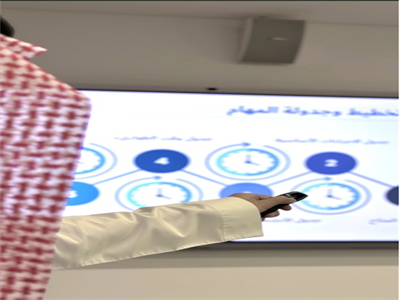Program Brief
There is a Chinese proverb that says: Behind every capable person there are capable people. Collaboration is a vital part of personal and professional life, so learning team development and organizational culture is a great start to a better future. This training program is designed to provide participants with the concept of team work, the mechanisms for building it, the importance of developing the group spirit among the participants, and mechanisms for increasing the degree of team cohesion, rooting group values and unifying the vision among team members, which increases the effectiveness of work teams and reduces friction and conflict between teams within the organization through Unity of vision and goals and achieving more effective results.
Sectors
Program Topic
- Personal Skills and Self-Development
Job Families
Program Goals
At the end of the training program, the participant should be able to:
- Recognize the concepts and importance of teamwork and work teams to achieve the goals of the organization through the practice of teamwork through harmonious work teams.
- Recognize the dynamics and life cycle of the work team using practical application to enhance the ability to build homogeneous teams.
- Recognize the strategies for managing work teams through the use of administrative tools and standards to ensure increasing the effectiveness of work teams.
- The use of management through work teams, which enhances teamwork in the organization to achieve better productivity.
- Enhancing conflict and conflict management skills in the work environment and ways to deal with them to reduce their occurrence and invest them as a catalyst for achieving the organization's goals.
Program Agenda
Module 1: Introduction to Teamwork
1 The concept of teamwork
2 The concept of work teams and groups and the difference between them
3 Building effective work teams
4 Team Building Objectives
5 Team building benefits
6 Characteristics of effective work teams
7 Mechanisms and methods of teamwork
Module 2: Building an Effective Team
1 Distinguished teamwork specifications
2 Laws of teamwork
3 Determine the strengths of the team and the ability to distribute tasks
4 Defining the roles of the work team members
5 Belbin Team Roles Index
6 Evaluation of the work team
Module 3: Communication and Conflict Management Skills for Work Teams
1 Ways to communicate and build relationships in the work team
2 The skills and stages of listening and understanding between team members
3 Effective dialogue skills and strategies
4 Conflict management and conflict in the work team
5 Applying conflict management methods
6 Effective motivation methods in the work team
Program Requirements
Not Available
Program Path
Names of the training programs that are integrated (enriched) with the training program:
- Business Ethics
- Official Correspondence and the Art of Technical Writing
- Effective Communication Skills
Names of the training programs that after the training program:
- Not Available
Program Method
- Other
- Lecture
- Brainstroming
- Practical Implementation
- Dialogue Teams
- Role-play
Evaluation Method
- Pre Exam
- Post Exam
Training Type
- In Class Training
- Online Training





Add Comment